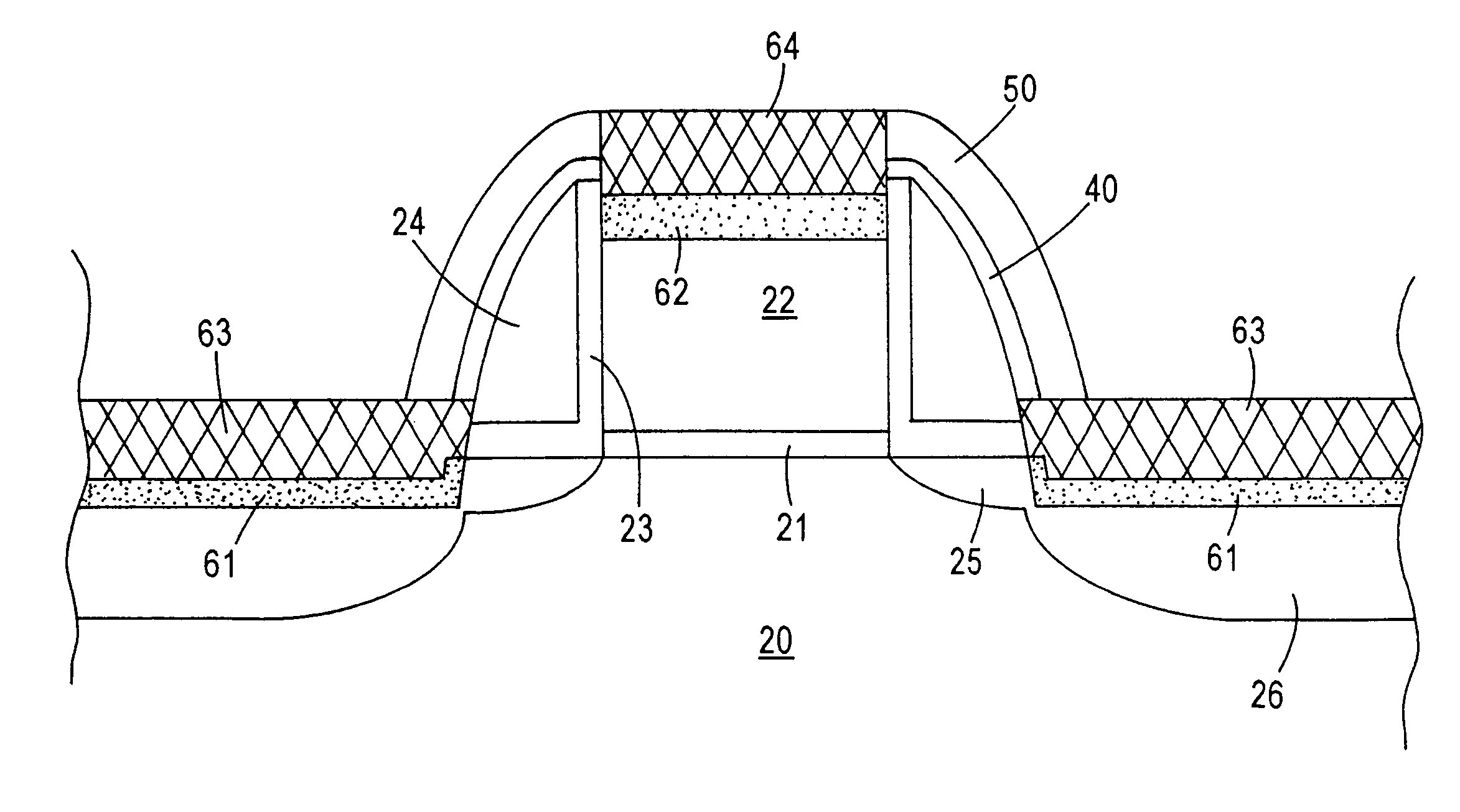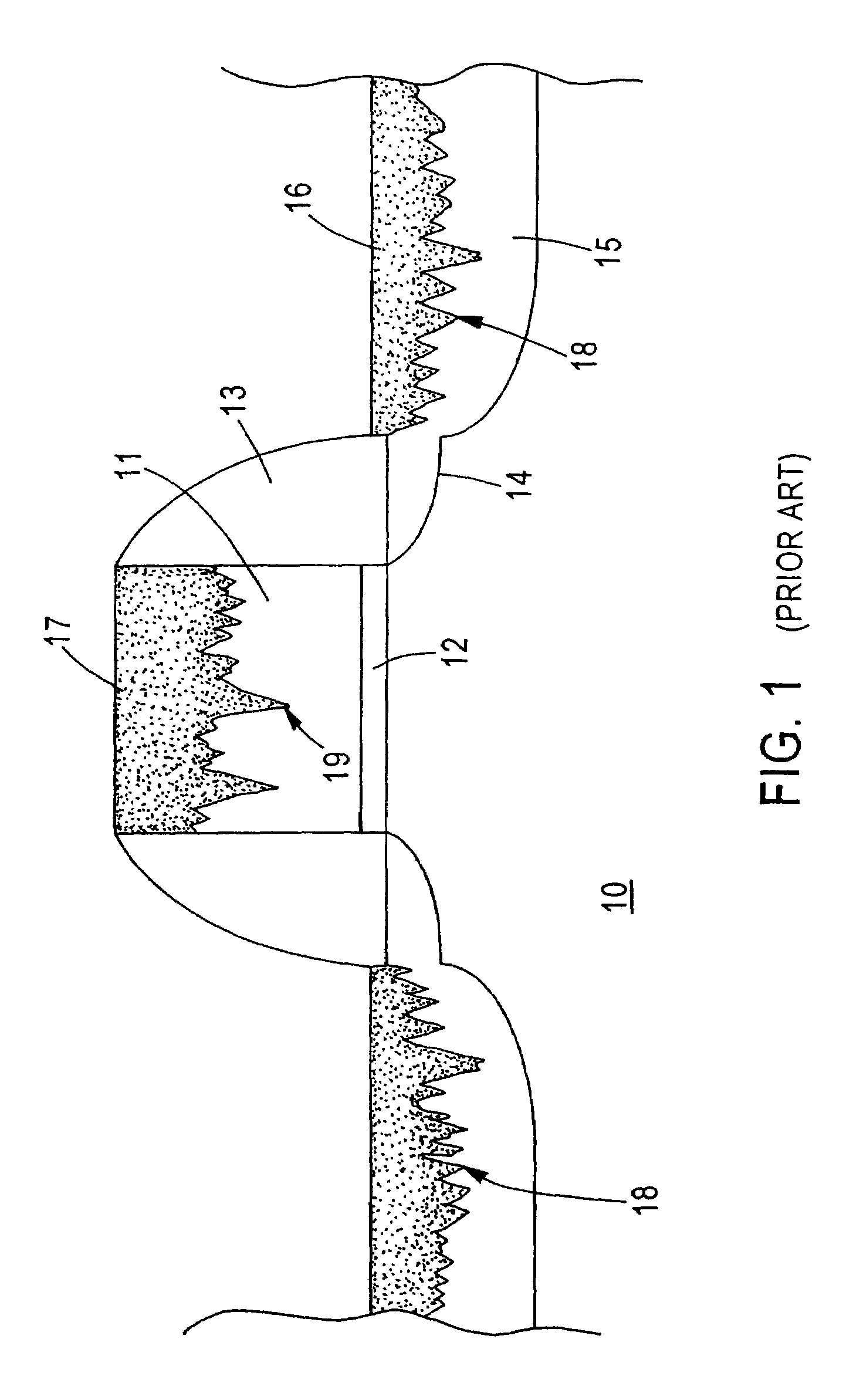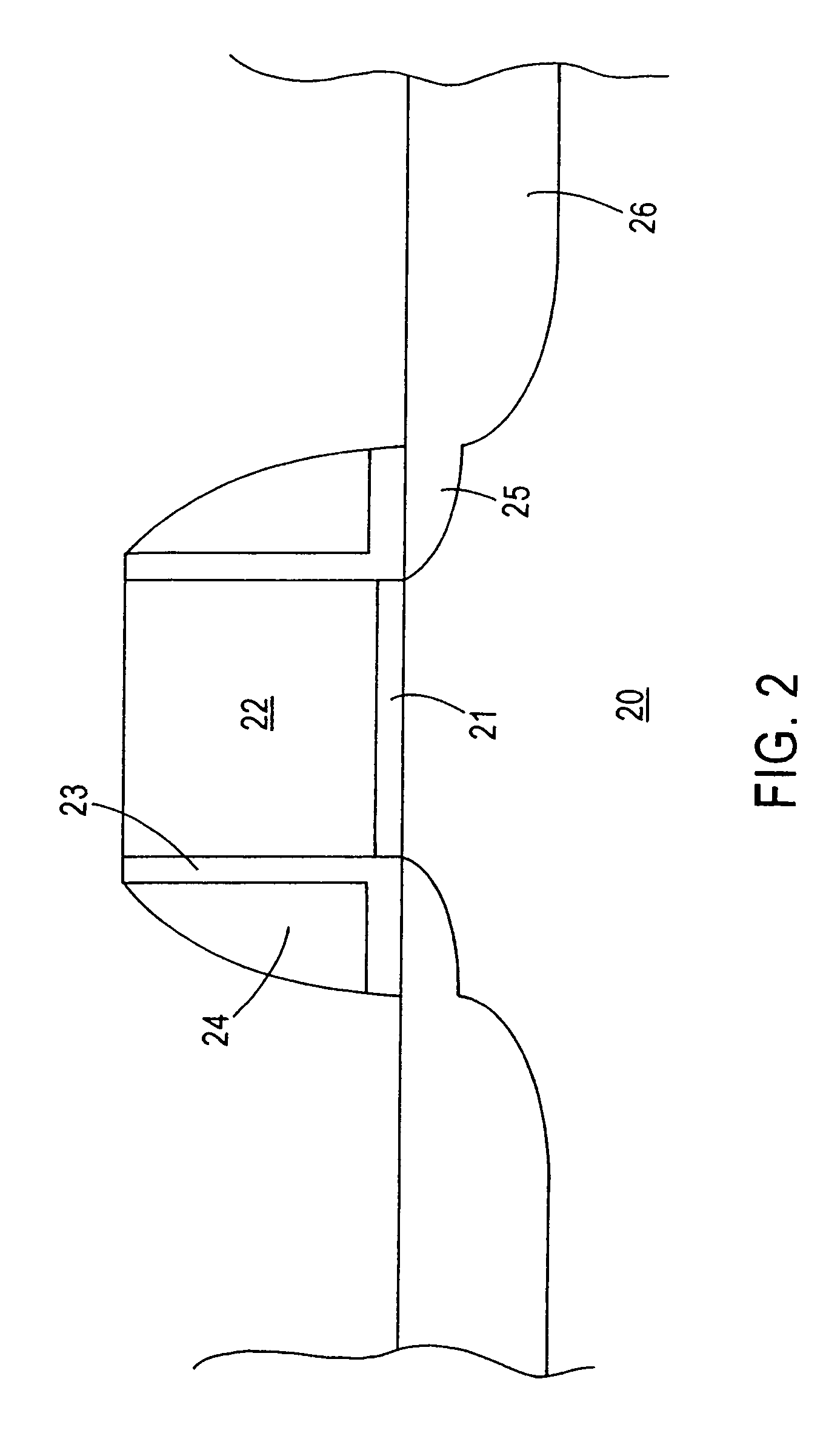Method of manufacturing semiconductor device having nickel silicide with reduced interface roughness
a technology of nickel silicide and semiconductor devices, which is applied in the direction of semiconductor devices, semiconductor/solid-state device details, electrical equipment, etc., can solve the problems of increasing the difficulty of accurately forming discreet devices on semiconductor substrates exhibiting the requisite reliability, more limiting circuit operating speed, and undesired rough interfaces, so as to reduce roughness and reduce roughness
- Summary
- Abstract
- Description
- Claims
- Application Information
AI Technical Summary
Benefits of technology
Problems solved by technology
Method used
Image
Examples
Embodiment Construction
[0022]The present invention addresses and solves problems attendant upon implementing conventional salicide technology employing nickel as the metal for silicidation. Such problems include the formation of an extremely rough interface between nickel silicide layers and underlying silicon, which roughness can lead to spiking and penetration into the source / drain regions, as well as spiking through a gate dielectric layer. Further problems include rapid consumption of silicon in the gate electrode which would destroy the known work function of polycrystalline silicon and highly reliable polycrystalline silicon / silicon oxide interface. Additional problems include nickel silicide bridging along the surface of silicon nitride sidewall spacers between the nickel silicide layer on the gate electrode and nickel silicide layers on associated source / drain regions. It is believed that nickel silicide bridging stems from the reaction nickel with dangling silicon bonds in the silicon nitride sid...
PUM
| Property | Measurement | Unit |
|---|---|---|
| temperature | aaaaa | aaaaa |
| temperature | aaaaa | aaaaa |
| thickness | aaaaa | aaaaa |
Abstract
Description
Claims
Application Information
 Login to View More
Login to View More - R&D
- Intellectual Property
- Life Sciences
- Materials
- Tech Scout
- Unparalleled Data Quality
- Higher Quality Content
- 60% Fewer Hallucinations
Browse by: Latest US Patents, China's latest patents, Technical Efficacy Thesaurus, Application Domain, Technology Topic, Popular Technical Reports.
© 2025 PatSnap. All rights reserved.Legal|Privacy policy|Modern Slavery Act Transparency Statement|Sitemap|About US| Contact US: help@patsnap.com



